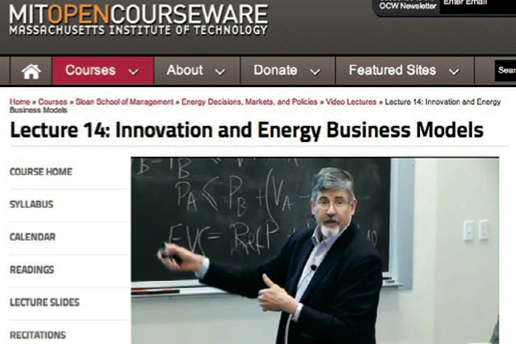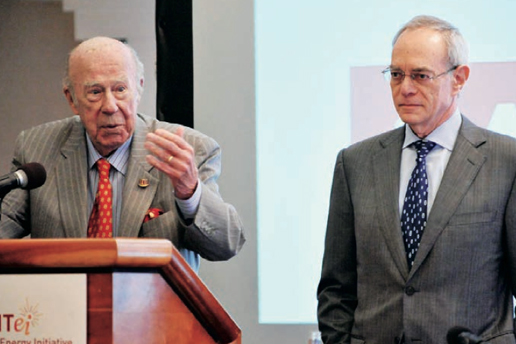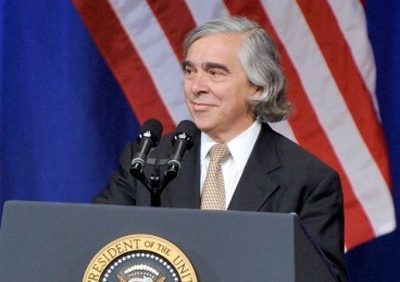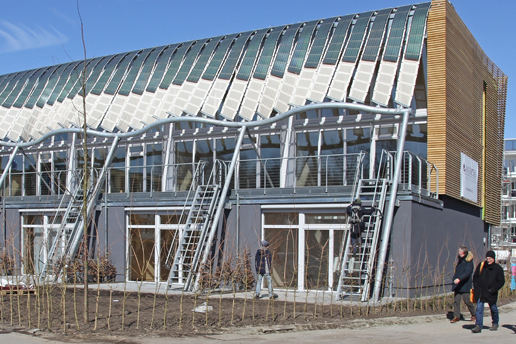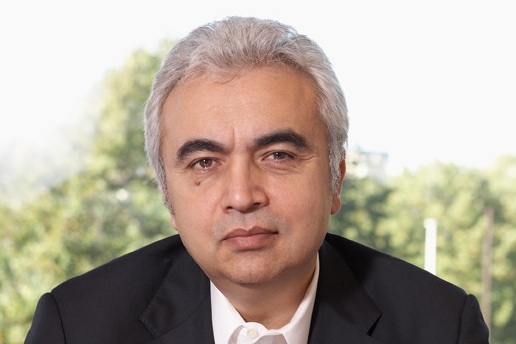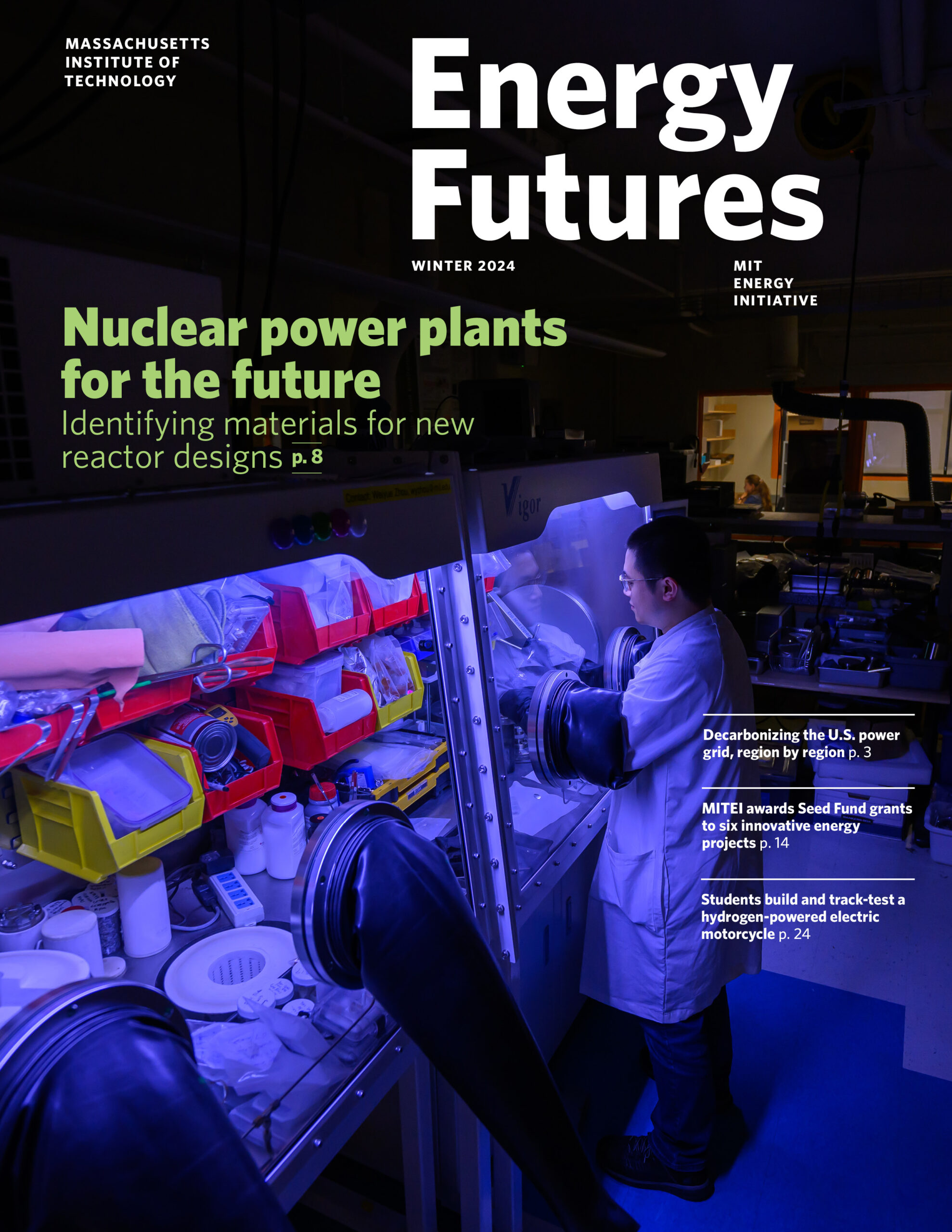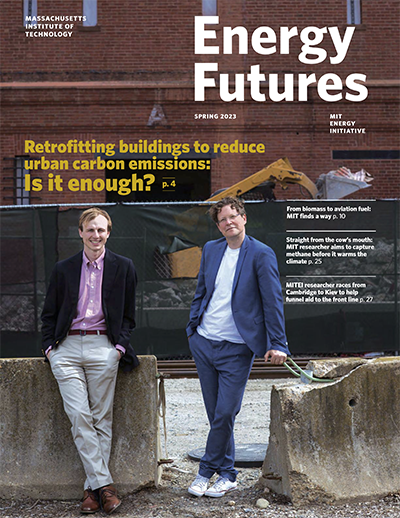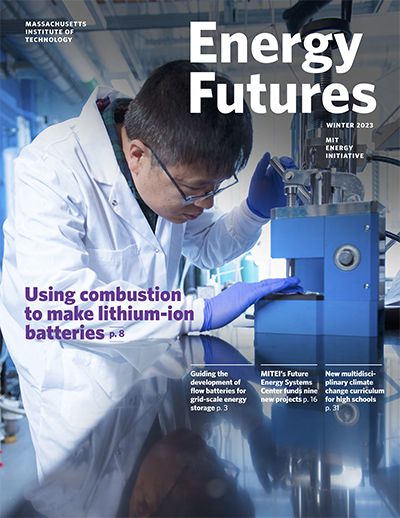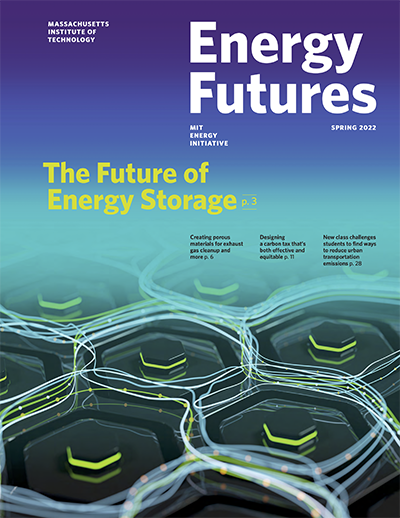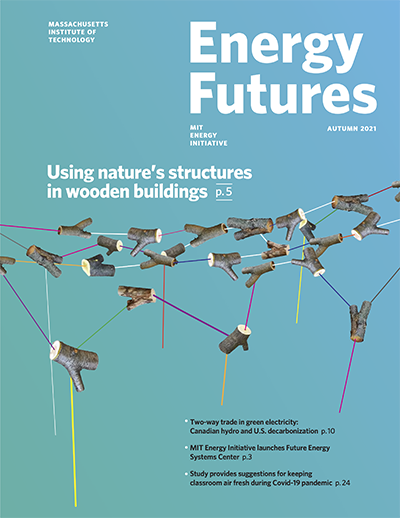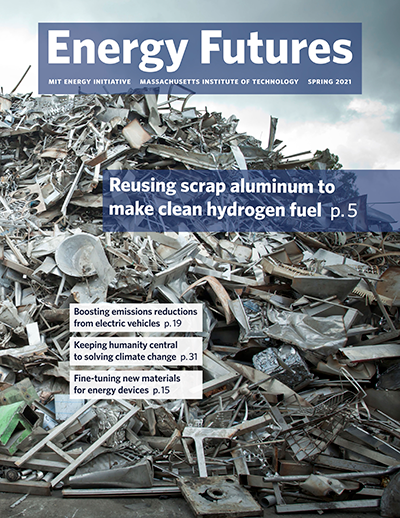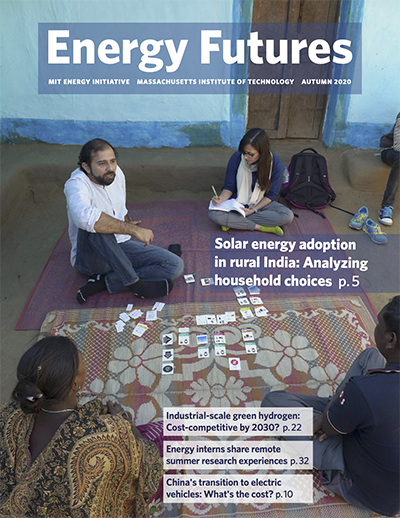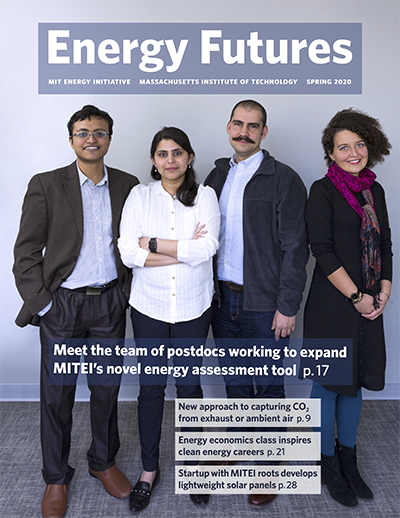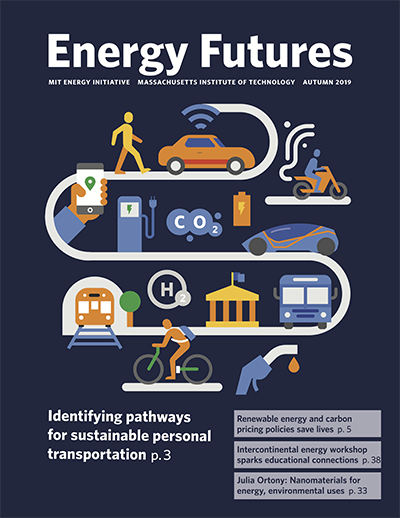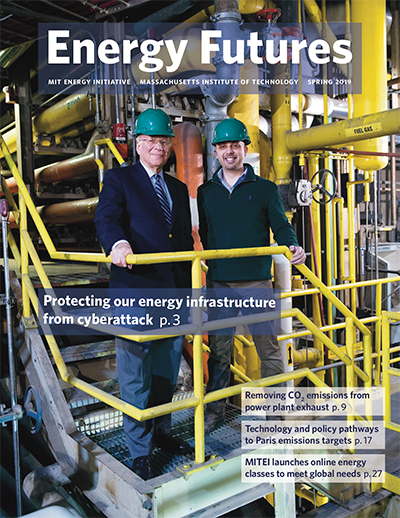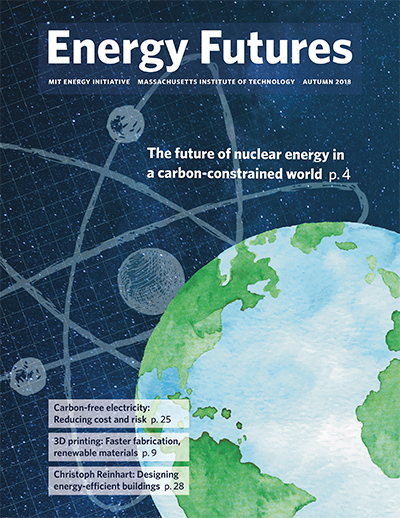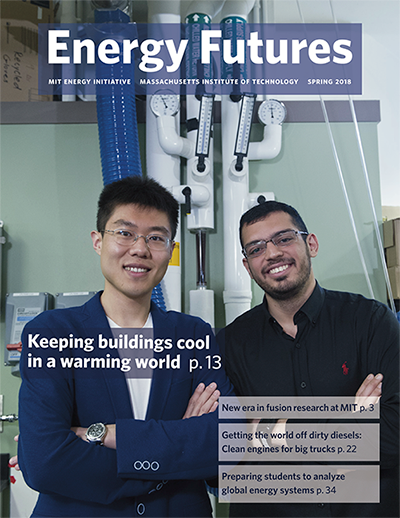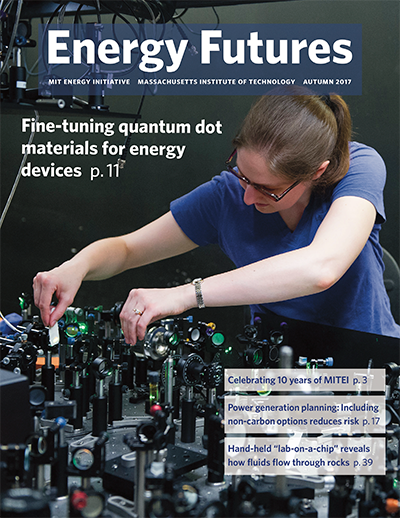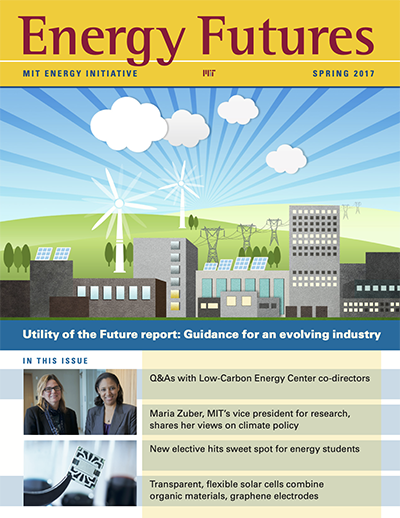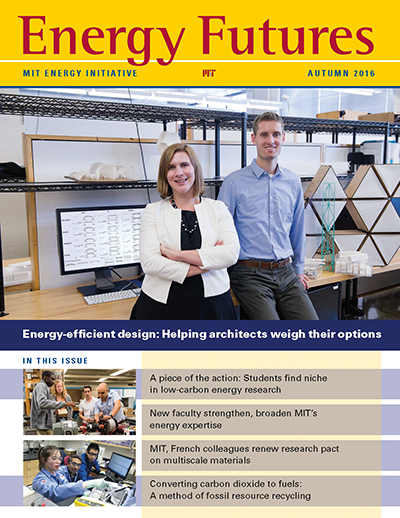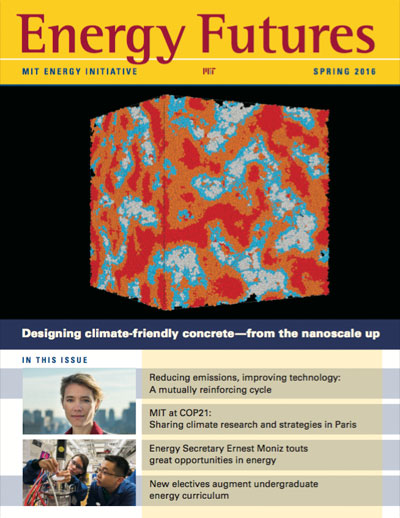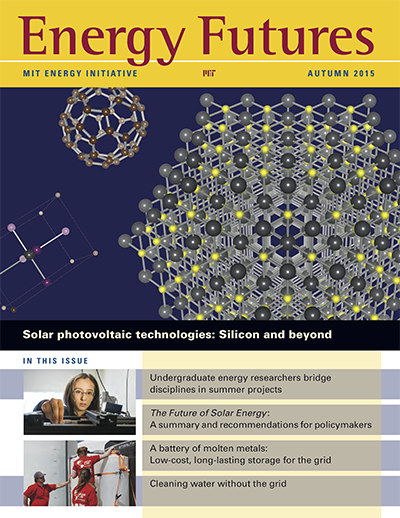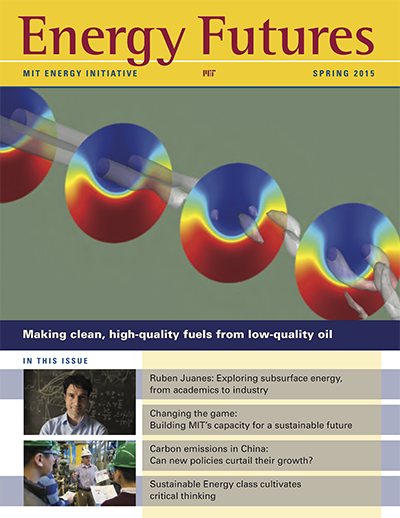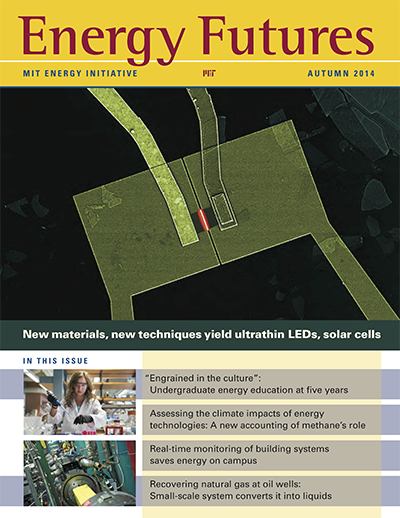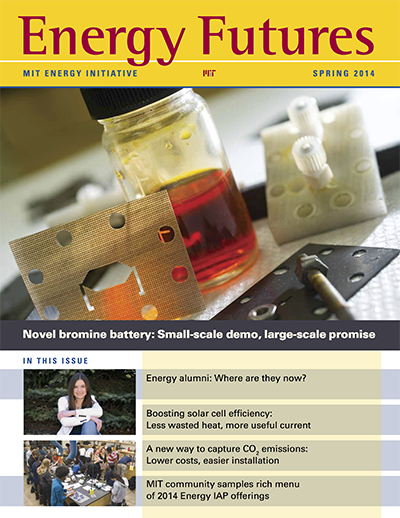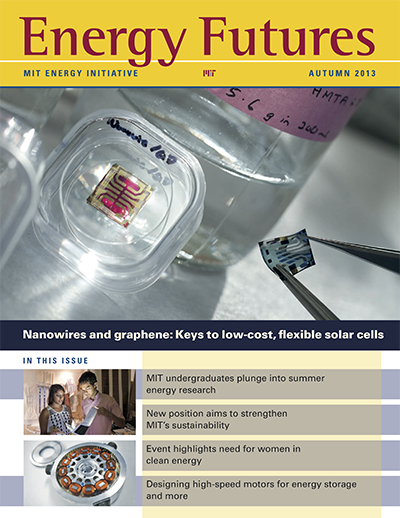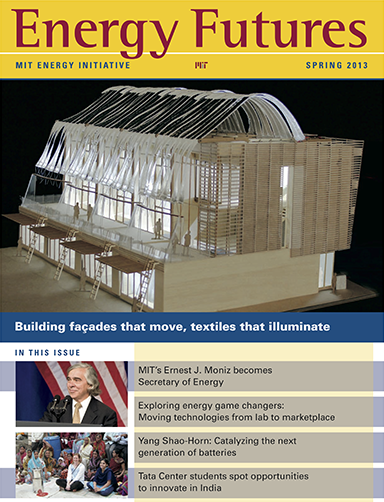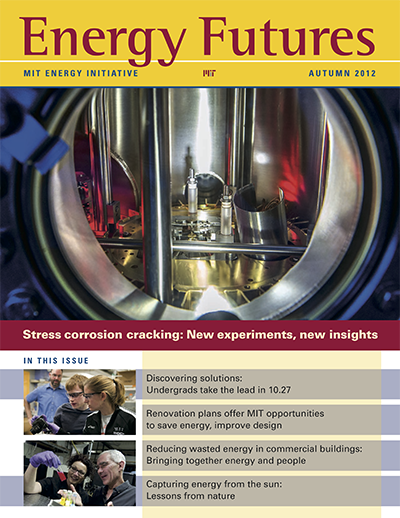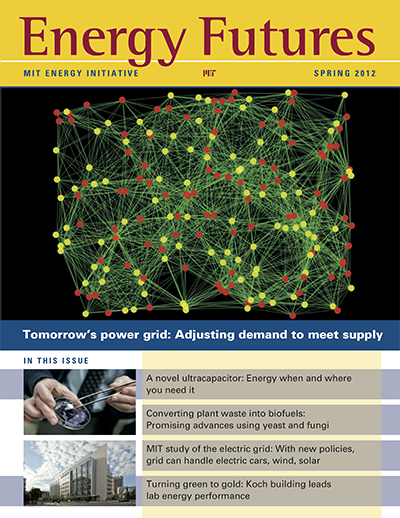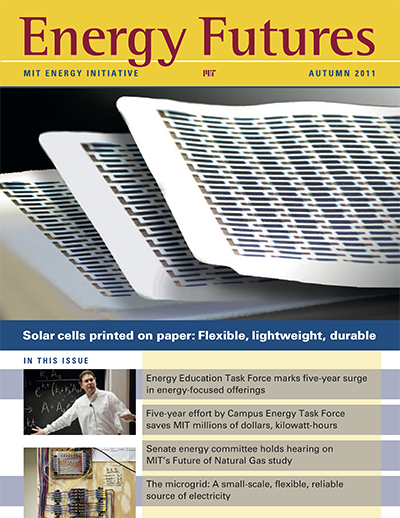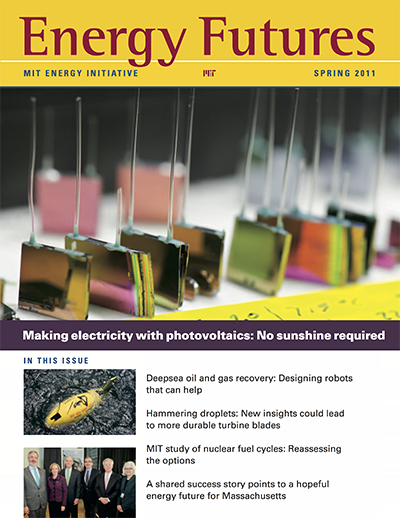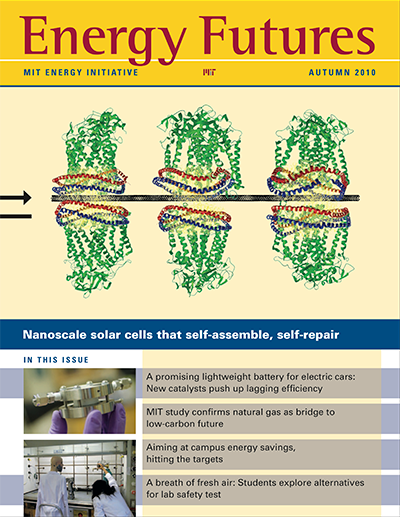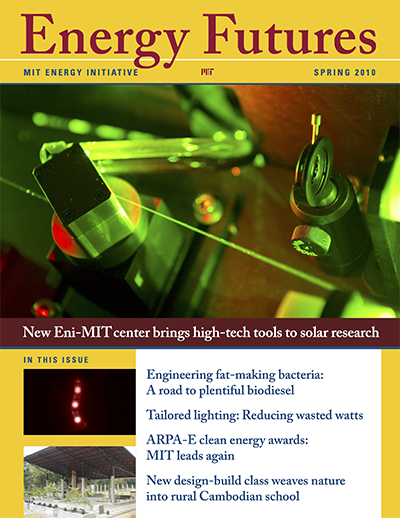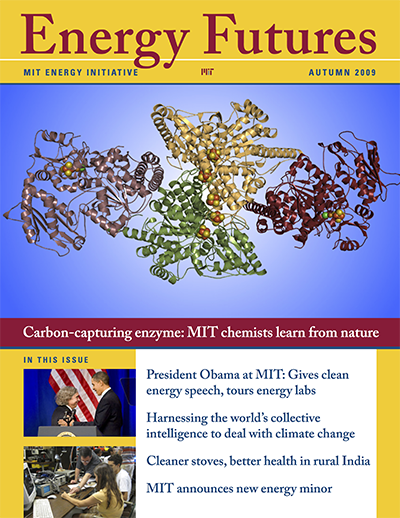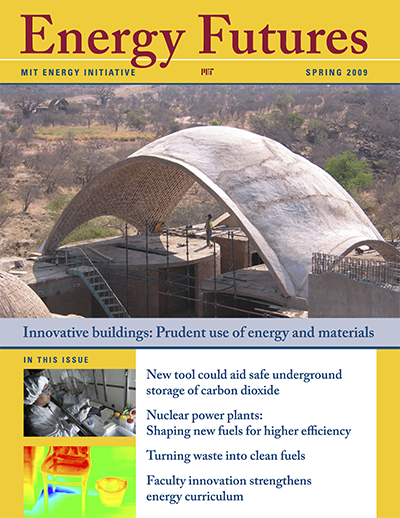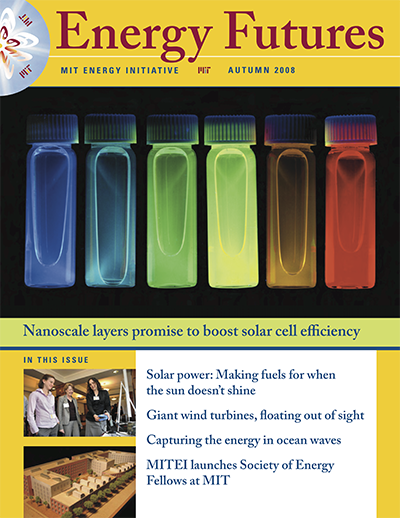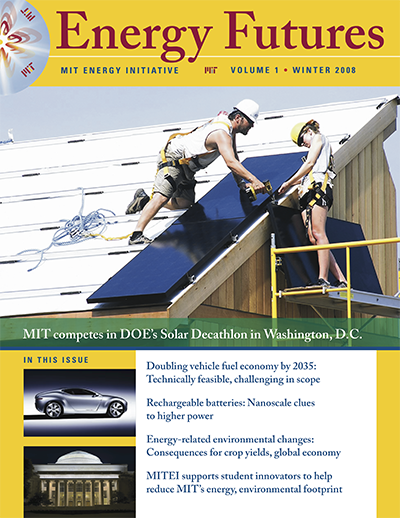Letter from the director
Dear friends,
At its founding, the MIT Energy Initiative (MITEI) was designed to be a flexible, robust, and responsive platform for highly focused energy-related research and education. This design is serving us well during this time of enormous transition at both the macro level, where the range of energy challenges is always dynamic, and the micro level, where we’ve undergone a change in leadership at MITEI.
Ernie Moniz’s departure as director of the Initiative is a loss for MIT and MITEI, but a major gain for the nation’s energy future. While I’m sad to see my friend and colleague go, I’m both proud and excited to take the reins as the new director of MITEI—proud of our accomplishments and excited for the future of the Initiative as we work together to meet global energy challenges.
At the macro level, the energy profile of the United States—and the world—is going through dramatic changes. Enabled by new technologies, the US now has access to some of the largest unconventional oil and gas resources in the world. The availability of those resources provides clear energy security benefits for the US, and can help the world—especially the emerging economies—meet an increasing demand for energy. But taking advantage of those resources could exacerbate the environmental and climate impacts of global energy production and use.
We saw last fall the impact a changing climate can have when “Superstorm Sandy” caused horrible devastation, at the same time highlighting the fragility of our energy infrastructures and networks. More recently, and certainly related to events like Sandy, the world crossed a critical threshold: Carbon dioxide concentrations in the atmosphere now exceed 400 ppm, a level at which we can expect to see more frequent and severe impacts from a changing global climate.
MITEI’s research agenda is responsive to those realities. One of the Initiative’s key drivers has always been to help move the world toward a low-carbon energy future. At the research level, this goal has translated into a focus on innovations in existing energy technologies and systems, and on transformational low- or no-carbon energy technologies. At last count, more than two-thirds of the research projects supported through MITEI focused on such no- or low-carbon technologies as renewable energy, energy efficiency, and carbon management, and on such key enabling tools as biotechnology, nanotechnology, and advanced modeling and simulation capabilities.
While continuing this important research, we’re extending our dual-track strategy—innovation and transformation—as we work to establish new strategic directions. With help from across the Institute, we have identified the following areas for expanded attention in research: energy conservation and efficiency in the built environment; energy requirements for water and water requirements for energy; the need for a more resilient, secure, and smart electric grid; and the contributions of life sciences to a low-carbon future.
As we enhance and expand our research priorities, we also continue to foster energy education across campus. With the June 2013 class, students from all five of MIT’s schools have graduated with the Energy Studies Minor—a demonstration of our fundamental belief that energy education must be cross-cutting. Looking forward, the long-term sustainability of the Energy Studies Minor appears bright due to an anonymous gift establishing an endowed fund to support teaching within the program.
With the continued strong support of MIT President L. Rafael Reif and Maria Zuber, MIT’s new vice president for research, MITEI is moving forward. As always, we’re committed to performing innovative and transformational research; working with our members to bring energy solutions to the marketplace; educating the next generation of energy experts; making our campus a model of efficient energy use; and providing policymakers with the unbiased, technically based analyses they need to make informed decisions.
Thank you for your support and interest. We hope you enjoy this eleventh edition of Energy Futures, which reflects a snapshot of the work that will drive our energy future forward.

Professor Robert C. Armstrong
MITEI Director











